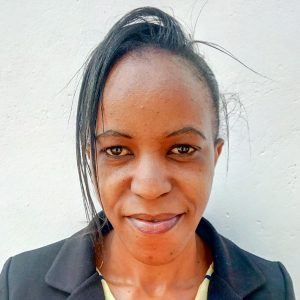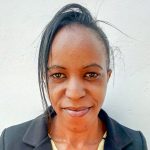Ekapwonje Primary School has a large student population of 673 students and 20 teachers. But sadly, the school constantly faces a water crisis and is limited in its progress. There are two small plastic rainwater tanks, but they cannot serve the entire school, especially since they are nonfunctional for most of the year, except during the short rainy season.
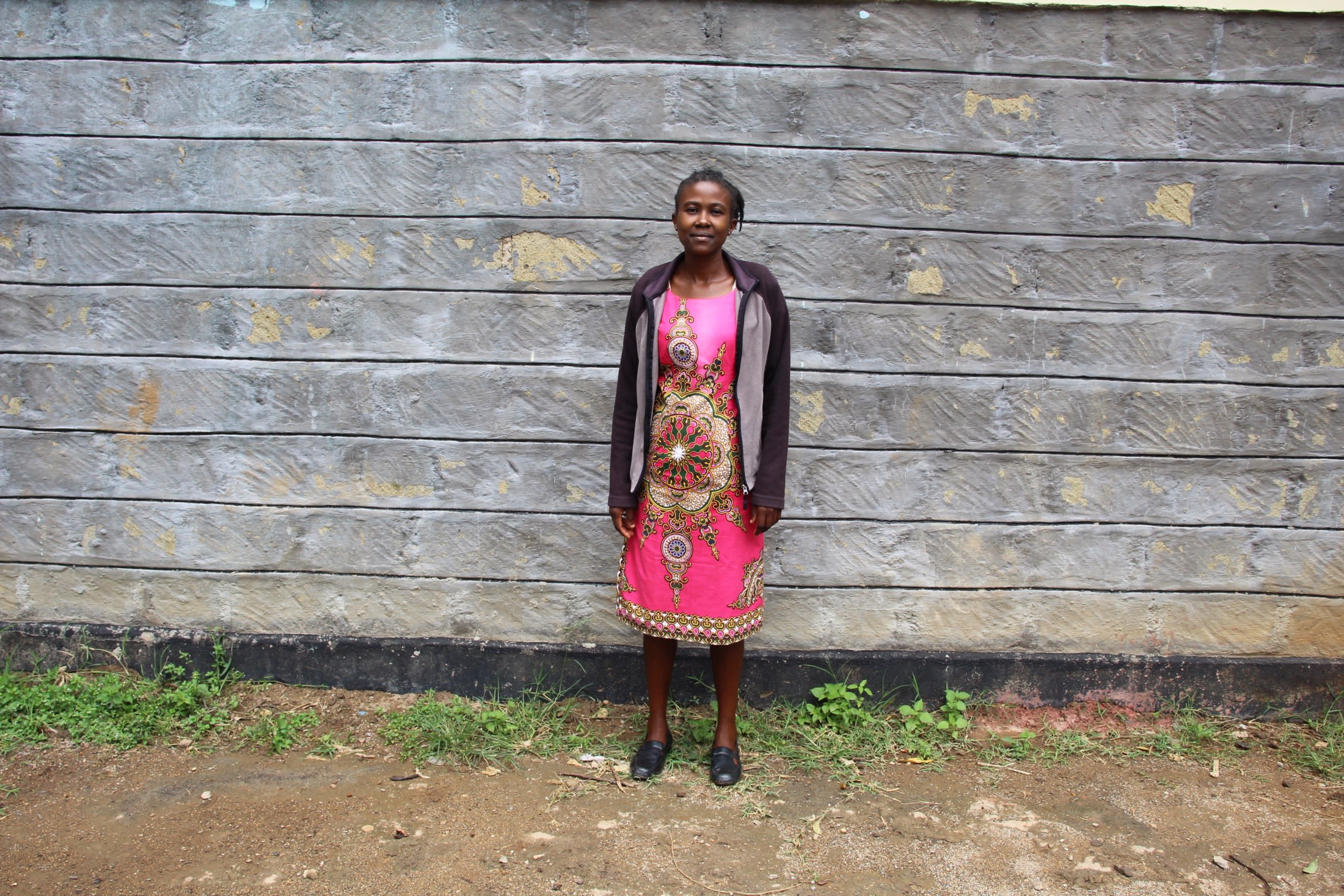
Teacher Nancy Wambulwa (in the photo above), 33, shared, "I am in charge of sanitation in this school. It's my role to ensure that all classes and sanitation facilities are cleaned throughout the week. Without water within the school compound, it becomes so hard; we end up cleaning our classes twice or thrice per week."
Pupils must bring water from home every morning to remedy the ongoing water crisis. And whenever they need more water throughout the school day, there is a roster to show which class is responsible for leaving school and collecting water.
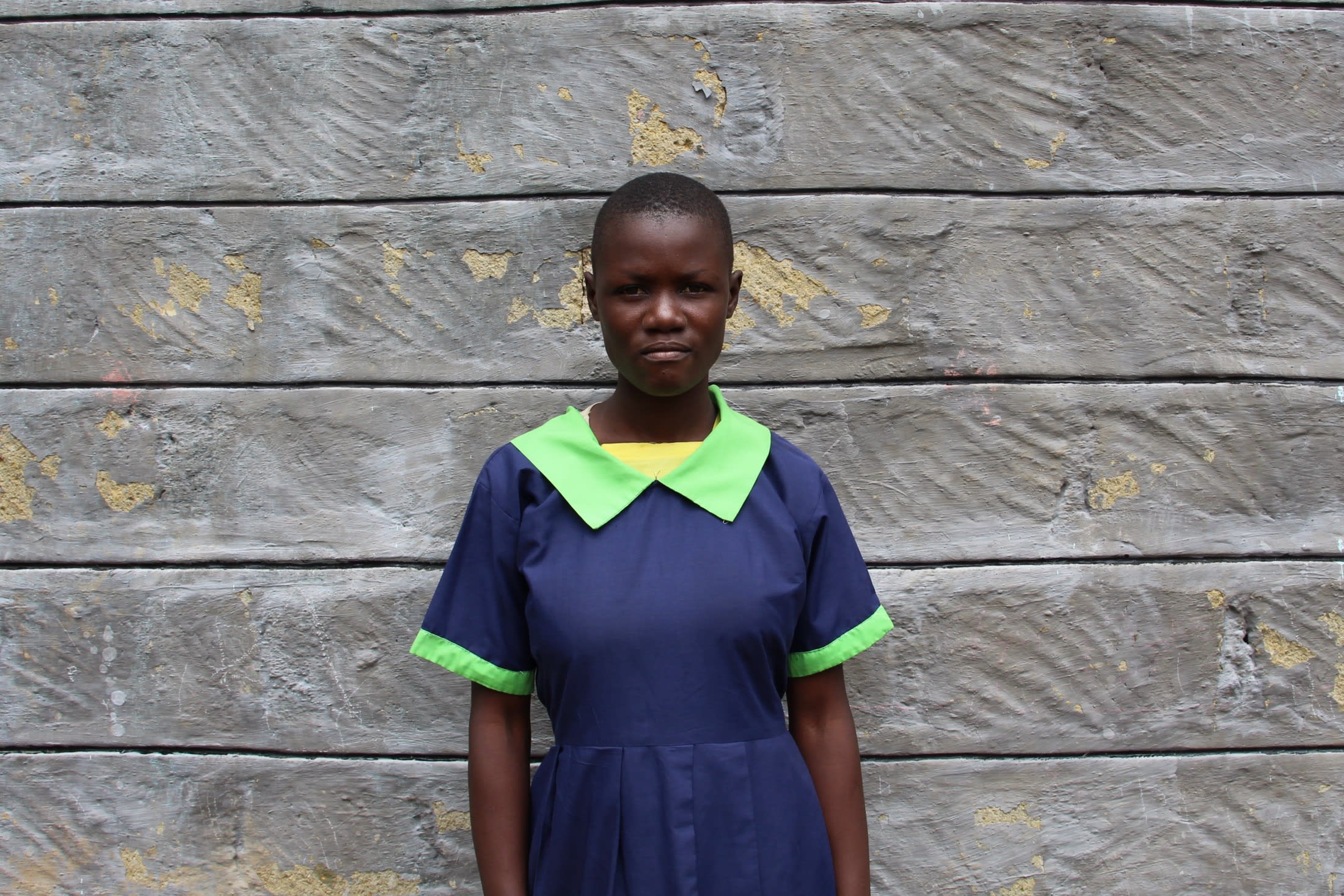
Beatrice A.(in the photo above), a 13-year-old student, commented, "There are [a] number of pupils who have dropped out of school because of [the] water challenges in school. Whenever they are sent for water, they involve themselves in undisciplined behavior that leads to school dropout or suspension."
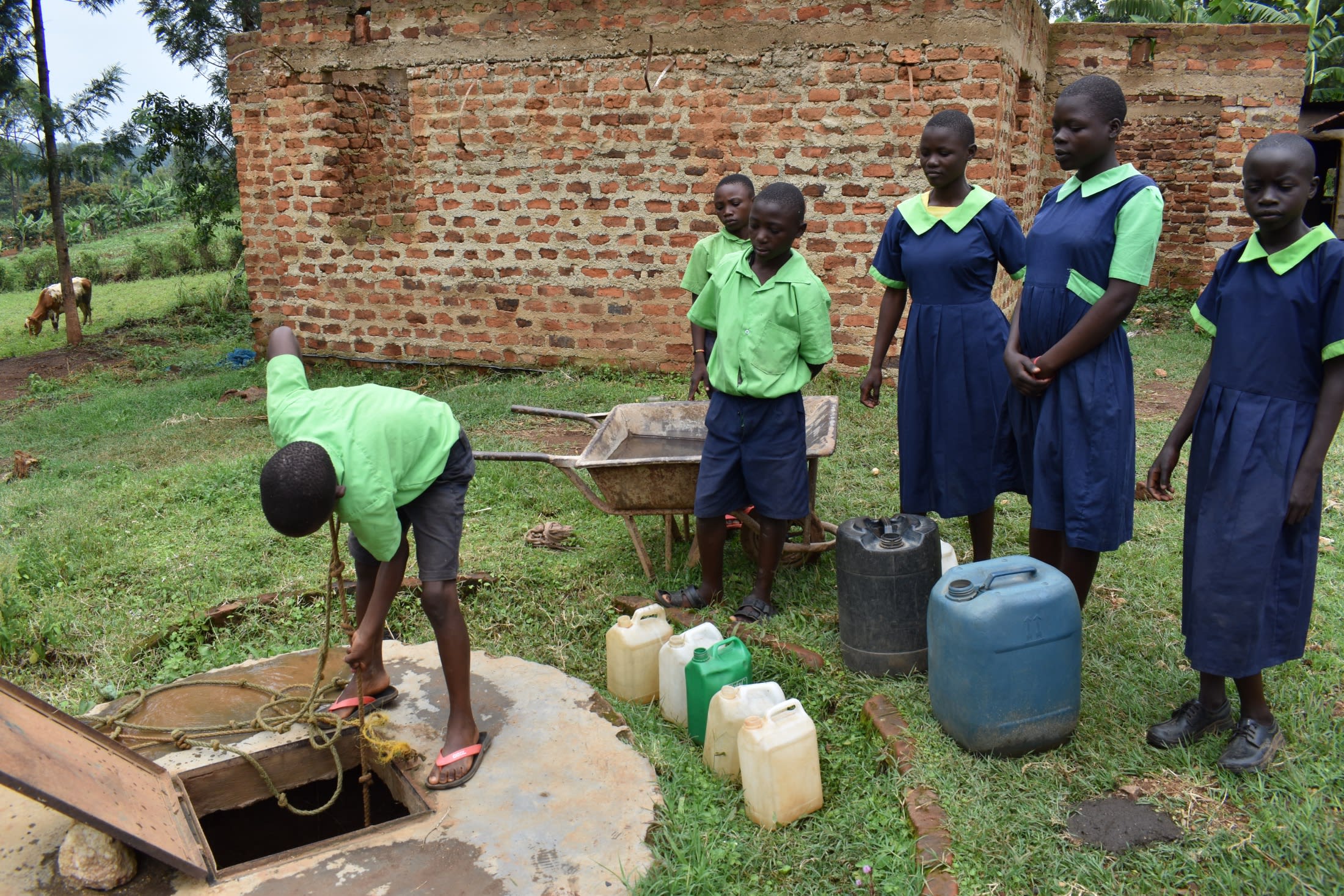
Most pupils choose to draw water from an off-campus hand-dug community well (in the photo above). But the well is wide open, so it is dangerous for students and leaves the water vulnerable to contamination. Between that and the student's unclean collection containers, the water is not safe for human consumption.
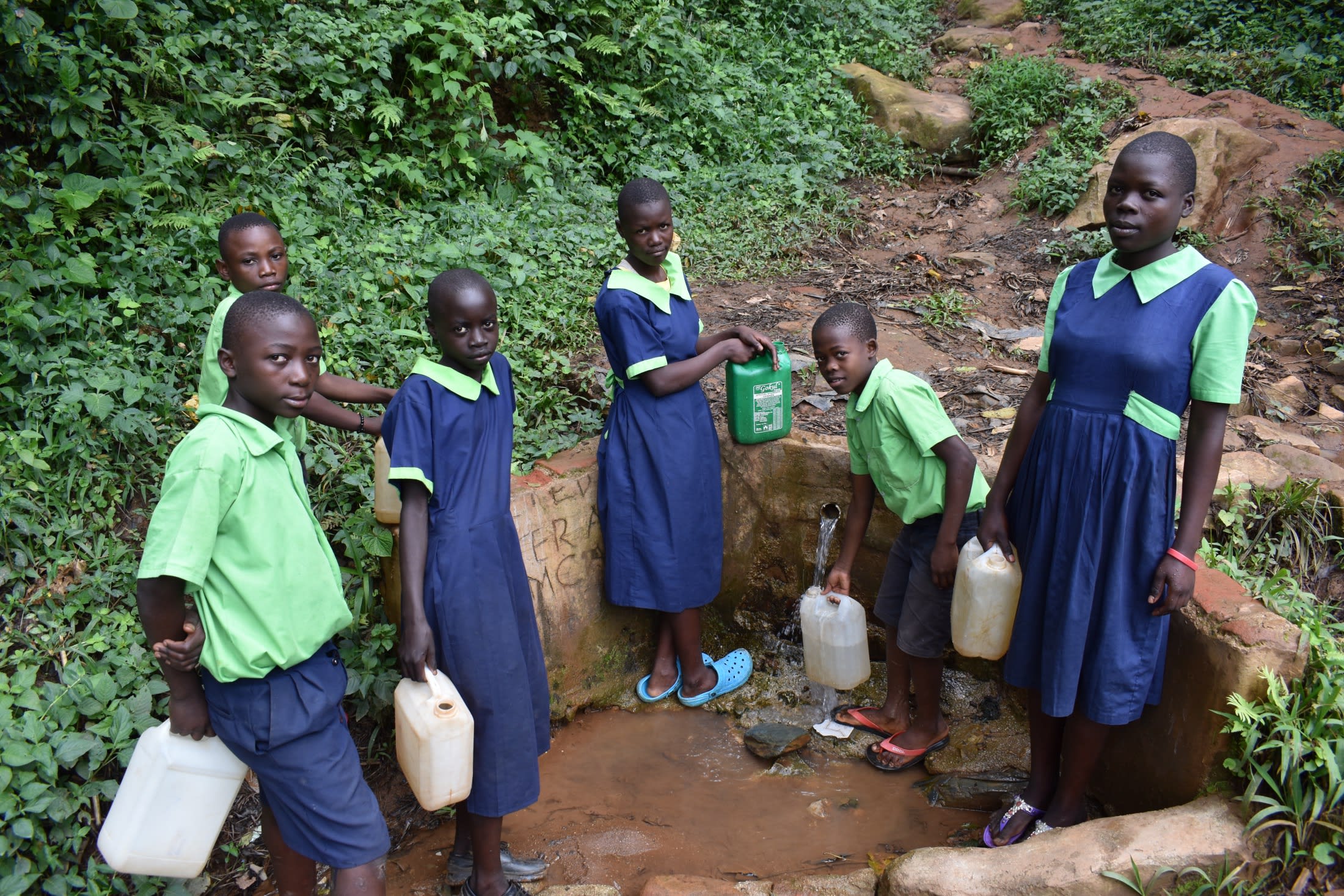
The alternative water source for students to collect from is a community spring (in the photo above). The spring sits at the bottom of a hill and is difficult to access, especially during the rainy season when the path is muddy and slippery. The area around the water collection point is dirty, and like the well, any water collected in dirty containers will end up contaminated and unsafe to consume.
Regardless of where students collect water, it is unsafe for drinking, makes students and teachers ill, and wastes valuable learning time. The school needs a clean, safe water solution to use throughout the entire year so students and teachers can be well and focus on learning once again.
What We Can Do:
New Well
We conducted a hydrogeological survey at this school and the results indicated the water table beneath it is an ideal candidate for a borehole well. Due to a borehole well's unique ability to tap into a safe, year-round water column, it will be poised to serve all of the water needs for this school's large population, even through the dry months.
The school will help collect the needed construction materials such as sand, rocks, and water for mixing cement. They will also provide housing and meals for the work team, in addition to providing local laborers. We will complement their materials by providing an expert team of artisans and drilling professionals, tools, hardware, and the hand-pump. Once finished, water from the well will then be used by the school's students and staff for drinking, handwashing, cooking, cleaning, and much more.
Handwashing Stations
There is currently nowhere for students to wash their hands after using the latrines or before eating lunch, let alone the water to do so.
The student health club will oversee the two new handwashing stations we will provide, and make sure they are kept clean and in working condition. The club leaders will fill the handwashing stations with water daily and make sure they are always supplied with a cleaning agent such as soap or ash.
VIP Latrines
We will construct two triple-door latrine blocks using local materials that the school will help gather. Three doors will serve the girls and three doors will serve the boys. All of these new latrines will have cement floors that are designed to be easy to use and to clean. And with a borehole right on school property, there should be enough water to keep them clean.
Training on Health, Hygiene, COVID-19, and More
We will hold a one-day intensive training session with students, teachers, and parents. This training will cover a wide range of topics including COVID-19 symptoms, transmission routes, and prevention; personal and environmental hygiene; and the operation and maintenance of the borehole, latrines, and handwashing stations. There will be a special emphasis on handwashing.
Our team of facilitators will use a variety of methods to train, including participatory hygiene and sanitation transformation, and asset-based community development. We will initiate a student health club, which will prepare students to lead other pupils into healthy habits at school and at home. We will also lead lectures, group discussions, and provide illustrative handouts to teach health topics and ways to promote good hygiene practices within the school including handwashing and water treatment. We will then conduct a series of follow-up trainings before transitioning to our regularly scheduled support visits throughout the year.
We and the school strongly believe that all of these components will work together to improve standards at this school, which will help lead to better student academic performance and will help unlock the opportunity for these students to live better, healthier lives.

 Borehole Well and Hand Pump
Borehole Well and Hand Pump
 Rehabilitation Project
Rehabilitation Project












